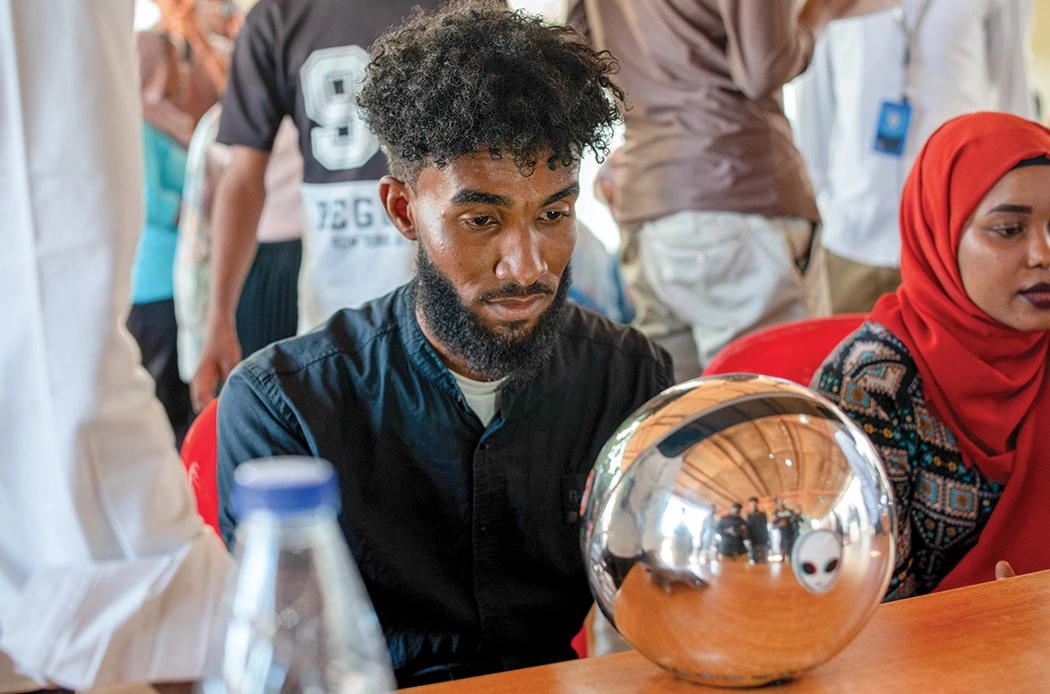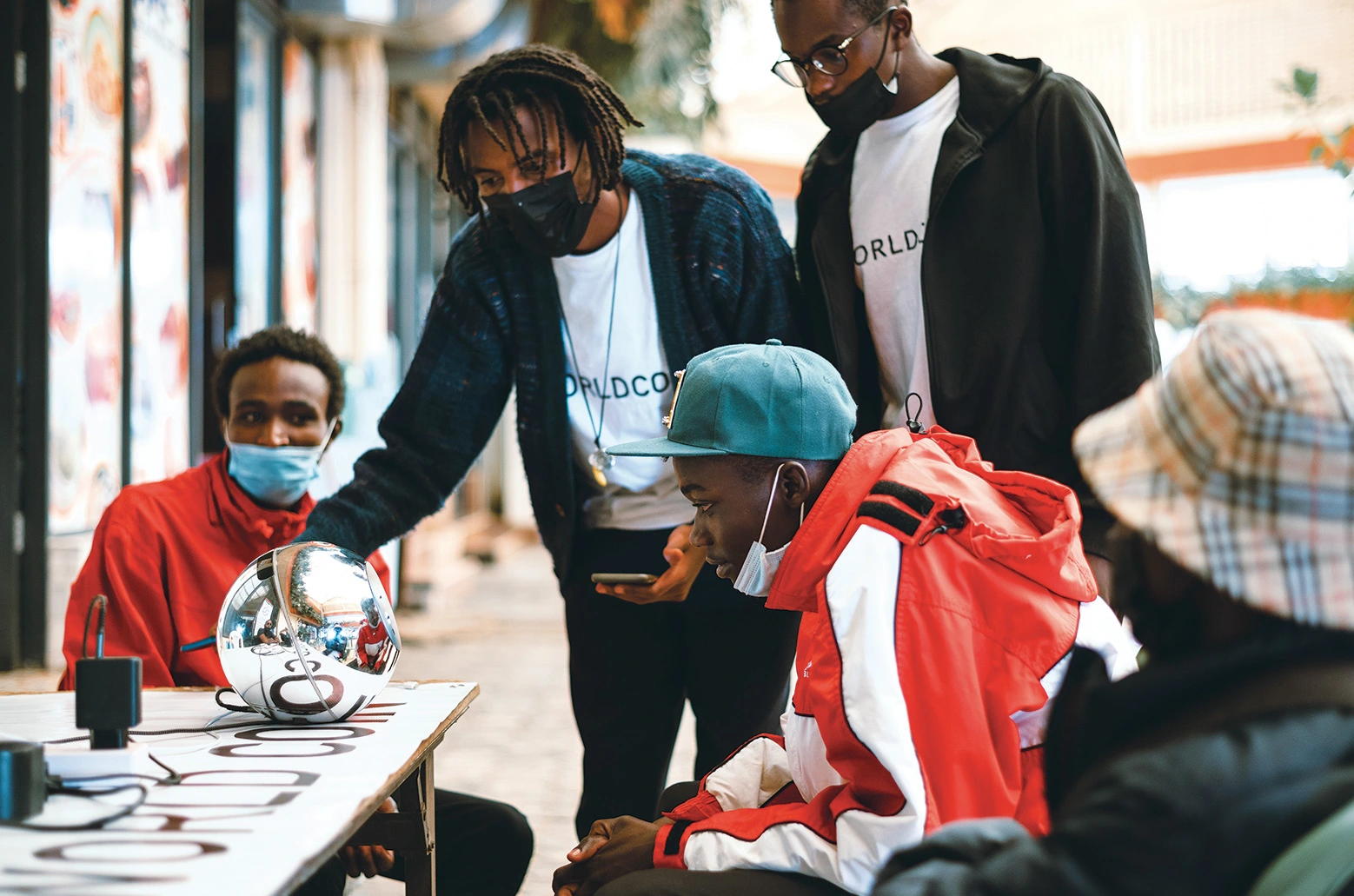Worldcoin Rebrands To World Network | Silicon UK Tech News
Sam Altman’s Worldcoin rebrands itself as pledges to ramp up its controversial iris-scanning crypto project
Worldcoin, a cryptocurrency project co-founded by OpenAI CEO Sam Altman, has rebranded itself and detailed new ways in which it will ramp up its controversial iris-scanning project.
At the new world event in San Francisco, the changes and updates were announced by Alex Blania and Sam Altman – the two co-inventors of Worldcoin which is now rebranded as “World Network”, or just “World.”
And the firm made clear it is not backing down from its campaign to scan people’s eyeball in order to make digital IDs in exchange for crypto, despite pushback from a number of privacy watchdogs around the world.
World ID
Started five years ago, Worldcoin had officially launched in July 2023 with a highly unusual scheme.
The company’s main offering is a “World ID” that is backed by retinal scans carried out by a silver “orb” and which are designed to prove a user is human and not a bot.

Users who take part in the scanning process are eligible to receive Worldcoin tokens, also known as WLD.
The project is being carried out by a company called Tools for Humanity based in San Francisco and Berlin.
Worldcoin is said to already scanned the irises of over 6.9 million people, but this has raised privacy concerns.
In August 2023 Kenya banned Worldcoin from recruiting new customers, amid concerns over its data privacy and security regarding the biometric scanning.

Then in March 2024 Spain’s privacy watchdog AEPD ordered Worldcoin to immediately cease collecting personal information, and stop using data it has already gathered, for a period of up to three months.
The Kenya investigation has now concluded, and permitted World to continue operating. However a number of EU investigations are still ongoing, and World’s fate in certain European countries remains uncertain.
Worldcoin now World Network
But far from being deterred, on Thursday the startup announced it is rebranding itself, and essentially has dropped the “coin” from its Worldcoin name and is now just known as “World Network” or “World”.
“Finally, as the scale of the project grows along with the importance of World ID’s proof of human protocol, the name ‘Worldcoin’ no longer encapsulates the mission of the project – to accelerate every human,” said the firm.
The firm also unveiled its next generation of iris-scanning “Orbs” and other tools at a live event in San Francisco.
World said that “the next generation Orb offers more advanced technologies… that enable World ID proof of human verifications to scale faster and more efficiently than before.”
It is powered by the latest Nvidia Jetson chipset with nearly 5x the AI performance over the previous version, along with other significant hardware and software enhancements. It is also both easier to build with 30 percent fewer parts and full auditability with a removable external SD card.
These updates have enabled the creation of new operating models to push the iris-scanning project, including flagship locations, on-demand Orbs, and self-serve Orb kiosks.
World ID meanwhile has been updated to the “most advanced” identity yet, namely World ID 3.0.
According to the firm, World ID Credentials allow World ID holders to optionally store information from their physical NFC-enabled passports in World App on their device, then use their World ID to prove things like age, nationality and unique passport ownership without revealing their real identity.
The World Foundation also decided to allow Verified Passport holders to claim WLD tokens (where available) even before they fully Orb-verify their World ID.
In addition to Credentials, World ID 3.0 offers increased privacy protections with AMPC, the next generation SMPC setup from World, and World ID Deep Face, a new way to combat online fraud, it claimed.
Other updates include the World App 3.0 (featuring Mini Apps for third-part app integration, a more useful Wallet, and WorldPay) and World Chain, which 15 million World ID holders and World App users have either migrated or are in the process of migrating to World Chain. It is said to be the first blockchain designed to prioritise human activity and transactions.
Related
‘A bit boring – but boring can be good’: Why…
Have you heard of RELX? A lot of people haven’t. A cursory browse of Google Trends suggests there is less “search interest” for RELX than virtually any ot
Ireland’s Version 1 pledges £40m investment into British AI economy …
Irish technology consultancy Version 1 has pledged to invest £40m into the UK’s AI economy following a discussion with leaders of both countries. The i
UK tech funding roundup: This week’s deals from Quantexa to…
This week’s UK tech funding deals include AI data intelligence platform Quantexa, biomaterials developer Epoch Biodesign and more. UKTN tracked £200.3m worth
‘Just get on and do it’: Riverlane boss urges fast…
The UK has everything it needs to lead the world in quantum computing. First-class scientific talent, a solid funding pipeline, groundbreaking companies and eve













